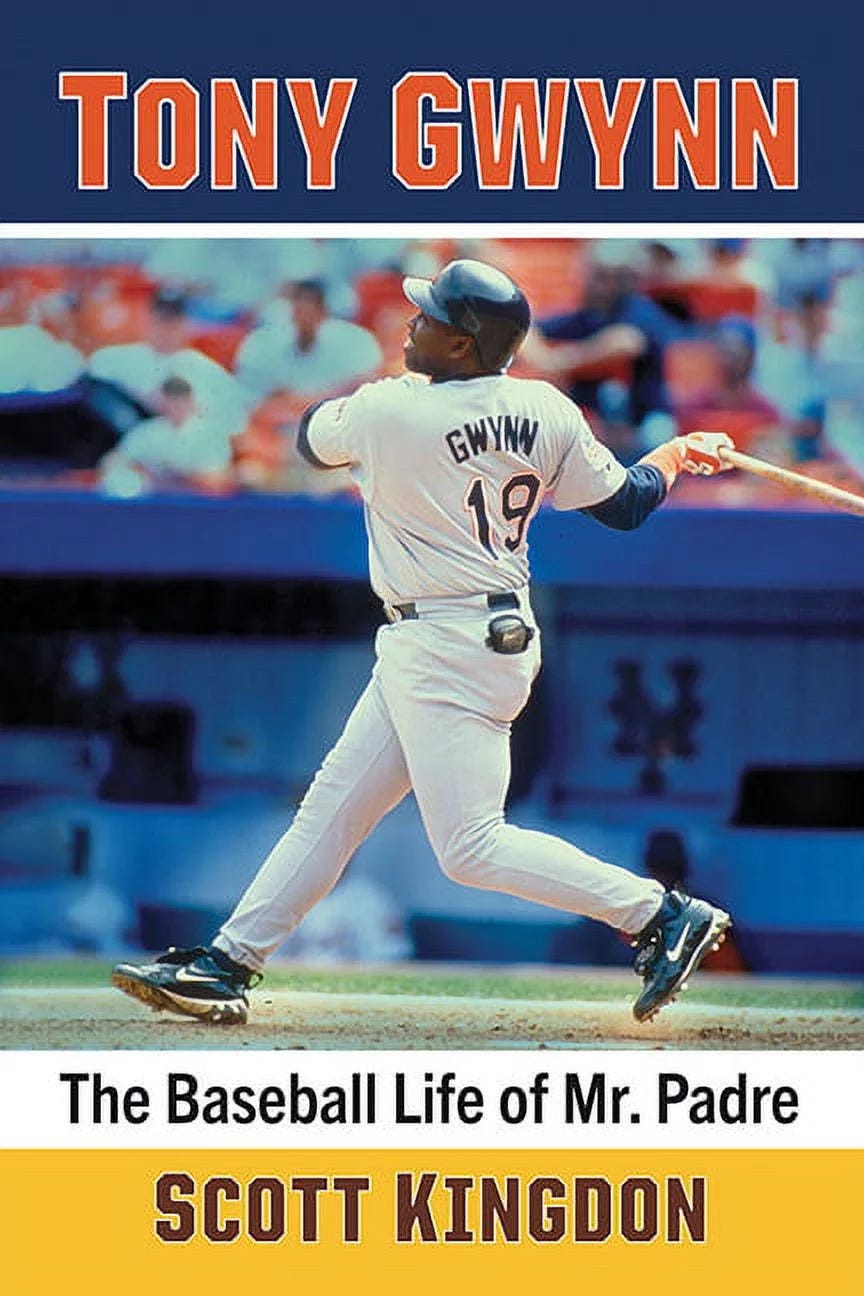Tony Gwynn is a Baseball Hall of Famer and worthy of a comprehensive biography. Unfortunately, Scott Kingdon’s 2023 book, Tony Gwynn: The Baseball Life of Mr. Padre is not it. There’s an opportunity to really dive deep into Gwynn’s life and there’s more to him than summarizing game logs. Kingdon delves into some drama every now and then but it doesn’t get much deeper than that. That’s what makes the book so frustrating.
Gwynn died in June 2014 but unlike ballplayers who died decades ago, many of the people who knew him are still alive. Where are those interviews? Where are the interviews with family members, teammates, managers, coaches, broadcasters, and sportswriters? Maybe this should have been seen coming—the preface to epilogue do not even total 180 pages. This should have been a warning sign—honestly, it probably was.
Gwynn was the second of three children in his family. He was born after the family left Tennessee for California. It’s there where he first developed his love for sports, later accepting a college basketball scholarship at San Diego State. Gwynn’s main requirement for playing college basketball was that he also wanted to play baseball. His younger brother, Chris Gwynn, was drafted by the Los Angeles Dodgers before the brothers later became teammates on the San Diego Padres.
During the 1981 MLB Draft, then-Padres VP of Baseball Operations Jack McKeon expected the Padres to take Gwynn with their second-round pick. The team’s scouts had other plans. McKeon delivered an ultimatum: draft Gwynn if he’s available in the third round or you’re fired. The Los Angles Clippers selected Gwynn in the tenth round. He chose baseball. While it wasn’t uncommon for two-sport pro stars during the 1980s or early 1990s, it’s becoming seemingly impossible for players coming up in later generations as they are asked to focus exclusively on a single sport.
Gwynn grew close with Ted Williams after Hall of Fame second baseman Joe Morgan introduced them at the 1992 All-Star Game in San Diego. Williams would pen the foreword to Gwynn’s second book. Anyone who watched the 1999 All-Star Game in Boston will famously remember their interaction. In fact, Gwynn aided Williams in throwing out the first pitch to Carlton Fisk. Kingdon delivers some insight into their relationship but again, interviews are one of the big thing that’s lacking here. Obviously, neither Tony nor Ted are alive but there’s an opportunity to talk to players who were at the game. The same goes for the Atlanta Braves pitching trio of Greg Maddux, Tom Glavine, and John Smoltz. Gwynn was able to figure out their pitching, hitting a combined 91 hits off them.
There’s a couple of errors here that should have been caught by Kingdon, let alone the editor or copy editor. Not to nitpick typos but neither Jack O’Connell (160) and Glavine (page 144) should have had their names spelled incorrectly. There are a few instances where words are definitely missing. I’m sorry but as both a reader and baseball fan, it just becomes more work in wanting to actually finish the book.
The definitive biography of Tony Gwynn has yet to be written as Tony Gwynn: The Baseball Life of Mr. Padre falls short.





